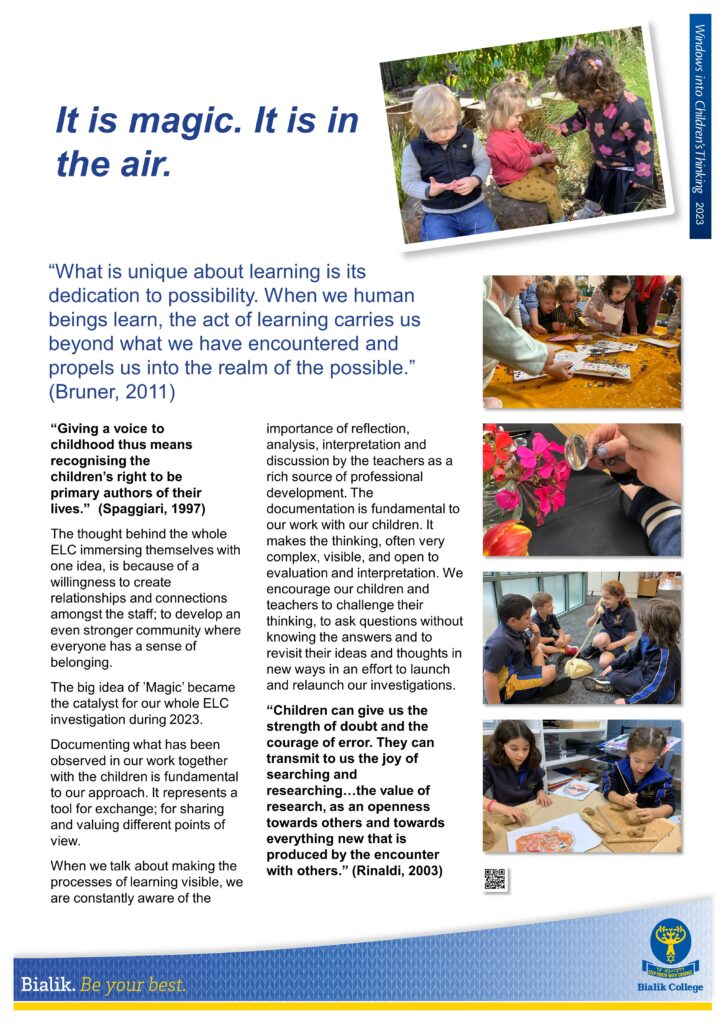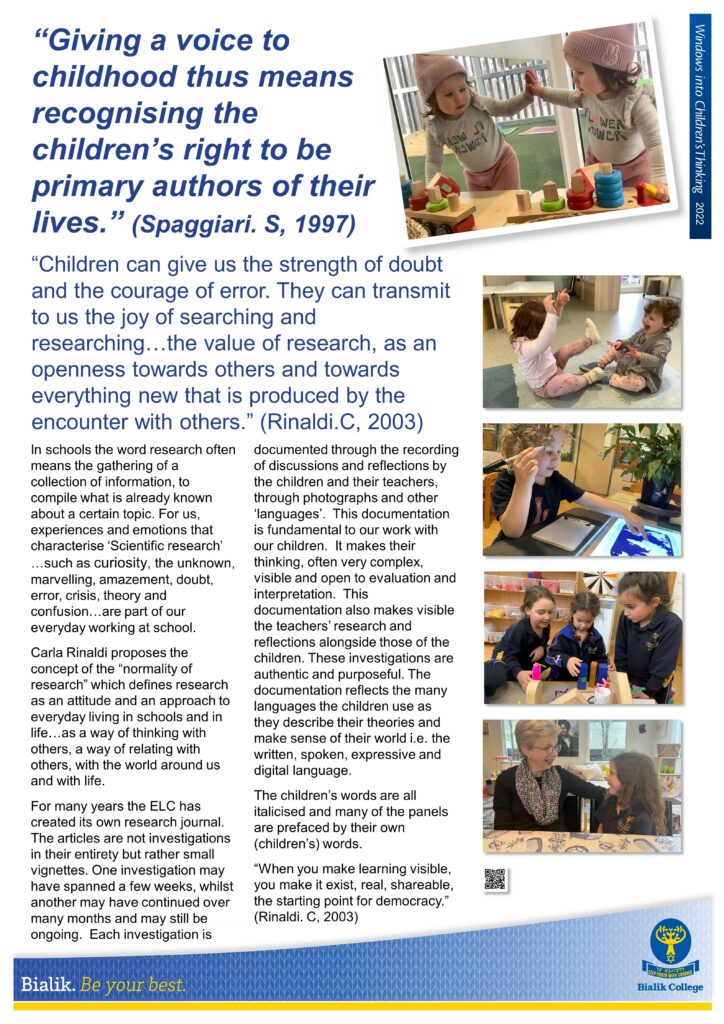“What is unique about learning is its dedication to possibility. When we human beings learn, the act of learning carries us beyond what we have encountered and propels us into the realm of the possible. The human learning process is not simply about acquiring knowledge about what we have encountered: it is dedicated to going beyond the information given. There is no other species on the face of the earth so dedicated to the pursuit of the possible.” Jerome Bruner
The thought behind the whole ELC immersing themselves with one idea, is because of a willingness to create relationships and connections amongst the staff; to develop an even stronger community where everyone has a sense of belonging.
The big idea of ’Magic’ became the catalyst for our whole ELC investigation during 2023.
Documenting what has been observed in our work together with the children is fundamental to our approach. It represents a tool for exchange; for sharing and valuing different points of view.
When we talk about making the processes of learning visible, we are constantly aware of the importance of reflection, analysis, interpretation and discussion by the teachers as a rich source of professional development. The documentation is fundamental to our work with our children. It makes the thinking, often very complex, visible, and open to evaluation and interpretation. We encourage our children and teachers to challenge their thinking, to ask questions without knowing the answers and to revisit their ideas and thoughts in new ways in an effort to launch and relaunch our investigations.
The investigations in our journal have taken place during 2023 and are examples of what can be achieved during collaborative group learning. Each one is authentic and purposeful. An investigation may have been fairly short, or may have continued over many months and may still be ongoing. What follows are not investigations in their entirety but are rather small vignettes, part of the processes, from every classroom in the Early Learning Centre.
The words of the children are written in italics, and many of the articles are prefaced by the words of the children. It is our hope that in reading this journal you will be able to construct your own meanings and questions as active participants of this process.
Click on the links below to access the classes:
Creche Aleph Creche Bet Creche Gimmel Creche Dalet
Kinder 3 Aleph Kinder 3 Bet Kinder 3 Gimmel
Kinder 4 Aleph Kinder 4 Bet Kinder 4 Gimmel
Prep Aleph Prep Bet Prep Gimmel
Year 1 Aleph Year 1 Bet Year 1 Gimmel


